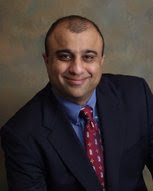Mouth-to-Mouth May Not Save More Lives During CPR, Two Studies Conclude
By Arielle Fridson - Jul 28, 2010 2:06 PM PDT Wed Jul 28 21:06:34 UTC 2010

By Arielle Fridson - Jul 28, 2010 2:06 PM PDT Wed Jul 28 21:06:34 UTC 2010

CPR is performed on a dummy. Source: American Heart Association
Hollywood heroics aside, mouth-to- mouth resuscitation does nothing to improve the outcome of CPR, two studies showed. It doesn’t provide any benefit over the chest-pumping procedure, U.S. and Swedish scientists said.
Hollywood heroics aside, mouth-to- mouth resuscitation does nothing to improve the outcome of CPR, two studies showed. It doesn’t provide any benefit over the chest-pumping procedure, U.S. and Swedish scientists said.
In the research, there was no significant difference in survival for patients who received just chest-compression CPR from bystanders after heart stoppages compared with those who got both that treatment and mouth-to-mouth breathing, according to two papers published today in the New England Journal of Medicine.
While cardiopulmonary resuscitation can double or even triple a patient’s rate of survival, two-thirds of people in cardiac arrest outside a hospital don’t receive CPR, according to the American Heart Association. Bystanders might refrain from acting because they can’t identify cardiac arrest, are afraid of hurting the person, or are averse to mouth-to mouth contact, said Thomas D. Rea, an associate professor of medicine at the University of Washington in Seattle.
“Eliminating mouth-to-mouth from CPR may make a layperson less reticent to act and if they act, they can save a life,” said Rea, the lead author of the U.S. study. “Chest compression alone is simpler and intuitively easier.”
The U.S. researchers considered 1,941 people in cardiac arrest who needed bystanders to perform CPR until an ambulance arrived. The scientists reported finding no significant difference between the 981 patients who received chest compression alone and the 960 who received both that procedure and mouth-to-mouth breathing.
Survival Rates
The first group survived to hospital discharge at a rate of 12.5 percent and the second had an 11 percent survival rate, the scientists wrote. The trials were carried out in two counties in Washington state and in London in 2009. The Laerdal Foundation for Acute Medicine, based in Stavanger, Norway, funded the research.
For the other study, Swedish researchers collected data on 1,276 patients from 2005 to 2009. Of the 620 patients who received chest pumping only, the rate of 30-day survival was 8.7 percent. Of the 656 patients who received both chest pumping and mouth-to-mouth breathing, 7 percent survived the 30-day period. The study was funded by the Swedish Heart-Lung Foundation, based in Stockholm.
Emergency medical services each year treat about 300,000 people in the U.S., according to the Dallas-based heart association. These patients have a less than 8 percent chance of survival. Sudden cardiac arrest is the loss of heart function, breathing and consciousness, according to the Mayo Clinic, based in Rochester, Minnesota. It can be caused by diverse conditions, including heart attack, drowning, choking, and electrocution, or it can happen without any known cause, according to the heart association.
CPR Guidelines
The group, in guidelines published jointly with the Antwerp, Belgium-based International Liaison Committee on Resuscitation, has recommended hands-only CPR since April 2008, said Junaid Khan, president of the association’s East Bay Division and a cardiothoracic surgeon at Alta Bates Summit Medical Center in Oakland.
“These two studies are the first randomized control trial in this area, which constitutes the highest level of evidence that physicians trust,” Khan said in a telephone interview. “This will enable the strongest level of recommendation.”
Association officials now are “probably going to modify their statements in a more forceful way based on this study and other similar ones,” most likely by the end of this year, said Myron L. Weisfeldt, director of the Department of Medicine at John Hopkins Hospital in Baltimore.
Weisfeldt wrote an editorial on CPR, urging more research, that was published in the medical journal along with the studies.
Rescue Training
While the studies may cause instructors to place less emphasis on mouth-to-mouth techniques, it would be a mistake to eliminate them from CPR courses, Weisfeldt wrote in the editorial. The technique is effective against respiratory failure, the most common cause of cardiac arrest in children, he wrote. Each year, about 5,800 children under 18 suffer cardiac arrest in the U.S., according to the heart association.
